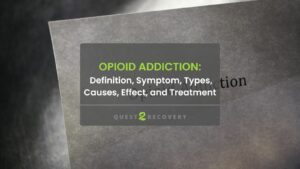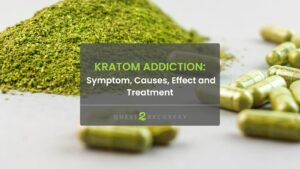Key Takeaways:
- Cultivating a grateful mindset can transform addiction recovery: Research has shown that practicing gratitude can have significant positive effects on mental health, including reducing stress and anxiety and overcoming negative thinking patterns.
- In addiction recovery, gratitude can serve as a powerful tool for positive change: By focusing on the things to be thankful for, individuals can stay motivated and driven towards recovery, and use gratitude as a means of self-reflection and emotional healing.
- Practical daily practices for gratitude can help support addiction recovery: Activities like journaling, writing gratitude letters, and expressing thanks to loved ones can help people stay mindful of their blessings and cultivate a grateful mindset. This can support more positive and healthy behaviors in everyday life.
Are you struggling with addiction and seeking a way out? Gratitude can be a powerful tool in addiction recovery, helping you cultivate a thankful mindset for your sobriety. You can learn to be grateful for the healing journey and all the progress you make.
The Power of Gratitude in Addiction Recovery: How a Thankful Mindset can Transform Your Journey
As someone who has personally experienced addiction recovery, I can attest to the transformative power that gratitude can have on the journey towards sobriety. It’s not just a feel-good emotion; gratitude has been scientifically proven to have a significant impact on mental health. In this section, we’ll explore the definition of gratitude and how it can affect addiction recovery. We’ll also dive into the numerous science-backed benefits of practicing gratitude, including its ability to reduce stress, improve sleep, and cultivate self-esteem. Buckle up and get ready to discover how a thankful mindset can transform your journey towards long-lasting recovery.
Defining Gratitude and its Impact on Mental Health
Gratitude is a concept that has gained traction in recent years for its potential impact on mental health. Defining gratitude and understanding how it works requires considering both the cognitive and emotional components of the experience. At its core, gratitude involves feeling thankful for positive experiences or people in one’s life. This active process of recognizing and appreciating what one has, rather than focusing on negativity or lack, can have profound effects on mental health.
Research suggests that cultivating a practice of gratitude can activate neural circuits associated with well-being and positive emotion. By directing attention towards positive experiences, individuals may be better able to regulate their emotions, increase feelings of social connection, and even improve physical health outcomes such as sleep quality and immune functioning. One possible reason for these benefits is that practicing gratitude can help shift individuals out of negative thought patterns or rumination that often exacerbate mental health challenges.
Beyond the scientific evidence supporting gratitude’s impact on mental health, many people report experiencing personal growth and transformation through regular practice. In addition to reducing symptoms of anxiety and depression, practicing gratitude can help individuals feel more resilient in the face of adversity, develop greater empathy for others, and deepen connections to spiritual or religious beliefs.
Pro Tip: A simple way to incorporate more gratitude into your daily life is to write down three things you are thankful for each day before bed. Not only does this allow you to reflect on positive experiences throughout your day but also creates a log you can revisit on days when you’re feeling down.
Science-Backed Benefits of Practicing Gratitude
Did you know that practicing gratitude has scientifically proven benefits? Here are just 4 of the benefits that have been backed up by science:
- Gratitude improves your mental health. Studies have shown that regularly expressing gratitude can lead to lower rates of depression and anxiety.
- Gratitude can improve your physical health. People who practice gratitude report having fewer aches and pains, better sleep quality, and even stronger immune systems.
- Expressing gratitude can strengthen your relationships with others. When we express appreciation for someone else, it reinforces our positive feelings towards them and deepens our bond.
- Practicing gratitude can increase our feelings of happiness and overall life satisfaction.
But how exactly does being grateful impact us on such a profound level? Gratitude is thought to activate the part of our brain responsible for releasing dopamine – the neurotransmitter associated with experiencing pleasure and reward. This release of dopamine may explain why people who practice gratitude feel happier and more content with their lives.
Here are a few suggestions for practicing gratitude in your daily life:
- Keep a “gratitude journal” where you write down 3 things you’re thankful for each day.
- Take a moment before each meal to pause and express thanks for the food on your plate.
- Make it a habit to compliment someone every day – whether it’s a friend or a stranger.
- Whenever you find yourself feeling negative, try to shift your focus towards what you’re grateful for instead.
With all these incredible benefits of practicing gratitude, it’s no wonder that cultivating thankfulness is becoming an increasingly common recommendation in addiction recovery programs. Stay tuned for the next section where we explore the powerful role that gratitude can play in addiction recovery!
The Role of Gratitude in Addiction Recovery
As I navigated my way through addiction recovery, I discovered the incredible power of gratitude. In this section, I will discuss the various ways in which gratitude can aid in addiction recovery. We’ll explore how practicing gratitude can help us overcome negative thinking patterns and view our situation with hope and positivity. We’ll also delve into how expressing gratitude can help alleviate the stress and anxiety that often accompany addiction recovery. Finally, we’ll explore how cultivating a thankful mindset can serve as a powerful force for positive change, inspiring us to take action towards our recovery goals.
Overcoming Negative Thinking with Gratitude
Do you find yourself being consumed by negative thoughts and emotions? Do you feel like everything is going wrong all the time? The solution might be simpler than you think. By focusing on gratitude, you can train your mind to overcome negative thinking.
Gratitude works by shifting our thoughts away from what we lack towards what we have, creating feelings of positivity and happiness. People who practice gratitude tend to be more optimistic, empathetic, and resilient. It helps us see life through a different lens, and it doesn’t take much effort to cultivate this mindset.
To overcome negative thinking with gratitude, start by acknowledging even the most mundane blessings in your life. From the food we eat to our comfortable beds, there are countless things worth feeling grateful for that we often take for granted. When we make a habit of appreciating these things, we begin to focus on the good rather than the bad.
Research has shown that practicing gratitude can lead to improved physical health as well as a decrease in depression symptoms. This is because it rewires our brains to prioritize positive experiences over negative ones. Even during challenging times, practicing gratitude can help us find hope and perspective.
To get started with cultivating a grateful mindset, try keeping a gratitude journal where you write down three things you’re thankful for each day. Another technique is making it a habit of expressing thanks when someone does something kind for you. Settings aside some daily moments of reflection where you express thankfulness can also work wonders in developing positive outlooks.
Feeling stressed? Overwhelmed with anxiety? Up next: Alleviating Stress and Anxiety with Gratitude – let’s dive in!
Alleviating Stress and Anxiety with Gratitude
Gratitude can be a powerful tool for alleviating stress and anxiety. It works by focusing on what we have in our lives rather than what we lack, and by cultivating a positive mindset that helps us to cope with difficult situations. By practicing gratitude regularly, we can train ourselves to see the good in every situation, to appreciate the people around us, and to find joy in the small things in life.
There are several reasons why gratitude is effective for reducing stress and anxiety. Firstly, it helps to shift our focus away from negative thoughts and emotions towards positive ones. This means that even if we’re going through a tough time, we can still find things to be grateful for – whether it’s our health, our relationships, or the beauty of nature.
Secondly, gratitude has been shown to reduce levels of stress hormones such as cortisol and adrenaline. This makes sense when you consider that stress is often caused by worrying about what might happen in the future or dwelling on past mistakes. Gratitude allows us to live in the present moment and appreciate what we have right now.
Finally, gratitude has been linked to improved physical health outcomes such as better sleep quality and reduced inflammation. This suggests that being grateful not only improves our mental health but also has positive effects on our bodies.
Interestingly, research has also found that expressing gratitude can be more effective than simply feeling grateful. This means that actively thanking people for their kindness or writing down things we’re grateful for can increase its benefits even further.
Feeling stressed? Take a moment to think about something you’re grateful for – it might just help you feel better! With this newfound positivity, let’s move on to the next topic – how can we use gratitude as a driving force for positive change?
Using Gratitude as a Driving Force for Positive Change
Gratitude is a powerful force that can drive positive change in people’s lives. When we focus on what we are thankful for, it not only makes us feel good but also helps us to see the world in a more positive light. Research has shown that practicing gratitude regularly can lead to improved physical and mental well-being, increased resilience, and a more optimistic outlook on life.
Using gratitude as a driving force for positive change involves consciously focusing on the things we are grateful for and using these as motivation to create positive change in our lives. It works by helping us to shift our perspective from one of lack or negativity to one of abundance and positivity. By focusing on what we have instead of what we don’t have, we can cultivate a mindset of gratitude that allows us to approach challenges with greater resilience and optimism.
One valuable way to use gratitude as a driving force for positive change is by keeping a gratitude journal. This involves writing down three things each day that you are grateful for. It could be something as simple as having food to eat or being able to spend time with loved ones. By taking time each day to acknowledge the good things in our lives, we begin to rewire our brains to focus on the positive.
Another way to practice gratitude is through acts of kindness. By doing something kind or helpful for someone else, we not only bring happiness into their lives but also cultivate feelings of joy and satisfaction within ourselves. This can help us to see the world through a more positive lens and inspire us to make changes that benefit not only ourselves but those around us too.
To make the most out of using gratitude as a driving force for positive change, try incorporating it into your daily routine. Start each day by listing three things you’re grateful for or take some time before bed each night to reflect on your day and think about what you’re thankful for. Small changes like this can help you develop a more grateful attitude towards life and inspire you to make positive changes that benefit yourself and those around you.
If you’re looking to cultivate a more grateful mindset during addiction recovery, try starting each day by taking a few deep breaths and reflecting on everything you have to be grateful for. Focus on the positives in your life rather than dwelling on the negatives, and use this gratitude as motivation to stay committed to your recovery journey. Remember, gratitude is a powerful force that can help drive positive change in your life – so embrace it wholeheartedly!
Cultivating a Grateful Mindset during Addiction Recovery
In this section, we’ll explore the power of gratitude during addiction recovery and the benefits it can bring. We’ll discuss simple daily practices, backed by research, that promote gratitude and how they can support a successful recovery journey. These practices include journaling, the healing power of gratitude letters, and expressing gratitude to friends, family, and support systems. So, let’s dive deeper into the ways in which gratitude can enhance addiction recovery, and how to make it a part of your daily routine.
Daily Practices for Gratitude, including Journaling
Daily Practices for Gratitude, including Journaling, are essential for those on the path of addiction recovery. Cultivating a thankful mindset can help people in addiction recovery to overcome negative thoughts and emotions, combat stress and depression, and find meaning and purpose in their lives.
Here’s a simple 3-step guide to practicing daily gratitude:
- Start by keeping a gratitude journal. Each day, write down three things you’re grateful for, no matter how small they may seem. This simple practice can help shift your focus from the negative to the positive.
- Practice mindfulness meditation or reflection. Take some time each day to reflect on what you’re grateful for and why you feel that way. Mindfulness can help build emotional awareness, self-control, and reduce anxiety.
- Express your gratitude towards others with a heartfelt thank-you note or gesture. Write a letter thanking someone who has made a positive impact on your life.
Daily Practices for Gratitude, including Journaling, is not just about saying thanks now and then – it’s about a state of being in which we appreciate what we have at any given moment—not only when we experience something extraordinary or get something new but when we pause even amidst chaos and appreciate the present moment fully.
Incorporating Daily Practices for Gratitude, including Journaling into our lives can be challenging at times; however, establishing this habit has numerous benefits in addiction recovery. It promotes a self-growth process that leads to emotional healing as well as serving as an inspiration to others who seek assistance from addiction challenges. Missing out on practicing daily gratitude can mean missing out on all these potential blessings!
Take the next step over “Daily Practices for Gratitude” – Let’s take it up ‘a notch’! Discover how you could experience a profound shift in well-being by following The Healing Power of Gratitude Letters!
The Healing Power of Gratitude Letters
Gratitude letters have a powerful healing effect on individuals. These letters allow us to express our appreciation towards people who have impacted our lives positively, improving our mental and emotional well-being.
The science behind gratitude letters is simple; expressing gratitude leads to an increase in dopamine, serotonin and oxytocin levels which further triggers the feelings of happiness and pleasure. It also helps in decreasing cortisol levels and reducing negative emotions like anxiety, depression, and stress.
Writing a gratitude letter assists in rewiring our brains to focus on the positive aspects of life rather than dwelling on negative experiences. Recent studies display that writing just one gratitude letter a week for three weeks consecutively provides significant benefits for up to six months.
It is essential to ensure that the recipient receives your gratitude letter as it increases their self-worth, enhances relationships, boosts empathy and even encourages their corresponding expressions of thankfulness. In order for the practice of gratitude letters to be successful towards recovery, it is crucial that the individual believes they are deserving of this positive affirmation in their lives.
To enhance the effectiveness of a grateful mindset during addiction recovery try incorporating small yet impactful suggestions such as keeping a gratitude journal with daily entries or find ways in which showing appreciation can be done through meaningful gestures like surprising loved ones with random acts of kindness.
Feeling grateful triggers positivity that reflects in your subconscious mind influencing your behavior towards people around you. Being able to recognize all those who help us get through life brings a sense of radiance into our everyday demeanor setting an example that paying it forward only leads to prosperity.
Next up: Create Strong Bonds by Expressing Gratitude towards Friends, Family & Support Systems!
Expressing Gratitude to Friends, Family, and Support Systems
Expressing gratitude to friends, family, and support systems is a powerful way to strengthen relationships and promote wellbeing. Showing appreciation for the people who have supported us through difficult times can help us feel more grounded and connected, while also boosting our sense of self-worth.
Expressing gratitude can take many forms, from saying “thank you” to sending a heartfelt note or gift. It’s a simple but effective way to acknowledge the efforts of those around us and recognize the positive impact they have on our lives. Research has shown that expressing gratitude can lead to lower stress levels, increased optimism, and improved overall health.
One valuable way to express gratitude is by writing it down. Keeping a gratitude journal can be an excellent practice for those in addiction recovery, as it allows them to reflect on their progress and acknowledge the support they’ve received along the way. By focusing on the positive aspects of their lives, individuals in recovery can begin to reframe their mindset and build resilience.
Interestingly, expressing gratitude may also have benefits for those on the receiving end. A study published in Emotion found that people who received letters of gratitude reported feeling happier and more satisfied with their lives than those who didn’t receive any such letter.
In short, expressing gratitude can have far-reaching benefits for both ourselves and others. Whether we’re recovering from addiction or simply seeking ways to improve our mental health, taking time to appreciate the people in our lives is always a good idea. “Gratitude isn’t just important for addiction recovery – it’s essential for living a healthy and fulfilling life.”
A Summary of Gratitude’s Mental and Emotional Health Benefits
Gratitude is an emotion that carries immense power, capable of transforming individuals’ mental and emotional health. By cultivating a thankful mindset, people can observe the benefits that this emotion brings to their lives. It can improve mood, boost self-esteem, and strengthen relationships.
Gratitude works by rewiring the brain and increasing levels of dopamine and serotonin, which are responsible for regulating emotions. It helps individuals focus on positive things in their lives instead of dwelling on negativity. Regularly practicing gratitude trains the mind to seek positivity in every situation.
Furthermore, studies show that gratitude enhances empathy and reduces aggression towards others. As individuals become more grateful for what they have, they tend to appreciate others’ efforts and become less critical of them. This fosters positivity in interpersonal relationships.
In addition to these benefits, gratitude also improves physical health by reducing stress, lowering blood pressure, and improving sleep quality. These outcomes positively reinforce one’s behavior towards practicing gratitude as a habit.
Taking Steps to Integrate Gratitude into Your Daily Life
Integrating gratitude into your daily life can bring positivity and happiness. It has been proven to be beneficial in addiction recovery, but it can benefit anyone seeking a more fulfilled life.
There are five simple steps you can take to integrate gratitude into your daily routine:
- First, start each day by setting an intention of gratitude. This can be done through meditation or simply taking a few moments to reflect on what you’re grateful for.
- Second, practice gratitude throughout the day by saying thank you and expressing appreciation for those around you.
- Third, keep a gratitude journal and write down things that made you feel grateful each day.
- Fourth, focus on the present moment and enjoy the small things in life such as nature or spending time with loved ones.
- Finally, end each day by reflecting on what you’re thankful for.
Gratitude is not just about saying thank you, it is much more than that. Practicing gratitude has been found to increase self-esteem, boost resilience, and enhance overall well-being. In studies where participants wrote letters of thanks to people who had positively impacted their lives, they reported feeling happier for up to a month after completing this task.
Incorporating gratitude into your daily life doesn’t have to be complicated or time-consuming. By making small changes in your mindset and habits, you can reap tremendous benefits that will improve your mental health and overall well-being.
If you don’t start practicing gratitude in your daily routine now, you could miss out on all the amazing benefits it offers! Don’t let fear hold you back from developing a grateful attitude towards life—it’s never too late to start living with more joy and positivity!
Some Facts About The Power of Gratitude in Addiction Recovery: Cultivating a Thankful Mindset:
- ✅ Practicing gratitude can improve overall well-being and decrease stress and symptoms of depression. (Source: Positive Psychology)
- ✅ A grateful mindset can also help individuals in addiction recovery stay motivated and reduce the likelihood of relapse. (Source: Psychology Today)
- ✅ Expressing gratitude to others can improve relationships and increase feelings of social support. (Source: Harvard Health Publishing)
- ✅ Gratitude can be practiced through daily journaling, expressing thanks to others, and focusing on positive aspects of life. (Source: Verywell Mind)
- ✅ Research has shown that gratitude interventions can have lasting effects on improving mental health and overall life satisfaction. (Source: Greater Good Magazine)
FAQs about The Power Of Gratitude In Addiction Recovery: Cultivating A Thankful Mindset
What is the power of gratitude in addiction recovery?
The power of gratitude in addiction recovery lies in its ability to shift the focus of the mind away from negative thoughts and emotions and towards positive ones. By cultivating a thankful mindset, individuals in recovery can start to appreciate the good in their lives and find hope and encouragement to continue on the path towards sobriety.
How does cultivating a thankful mindset help in addiction recovery?
Cultivating a thankful mindset helps in addiction recovery by reducing stress and anxiety, improving mood, and enhancing overall well-being. It also helps individuals to appreciate the simple things in life and find joy in the present moment, which can be especially important when facing the challenges of addiction recovery.
What are some ways to cultivate a thankful mindset in addiction recovery?
There are many ways to cultivate a thankful mindset in addiction recovery, including practicing gratitude journaling, expressing thanks to others, focusing on the positive aspects of life, and engaging in activities that bring joy and fulfillment.
Can cultivating a thankful mindset be used in conjunction with other addiction recovery methods?
Yes, cultivating a thankful mindset can be used in conjunction with other addiction recovery methods, such as therapy, support groups, and medication-assisted treatment. It is a complementary approach to addiction recovery that can enhance overall well-being and improve the chances of successful long-term sobriety.
How can I start cultivating a thankful mindset in my addiction recovery journey?
You can start cultivating a thankful mindset in your addiction recovery journey by starting a gratitude journal, practicing mindfulness and meditation, sharing your gratitude with others, and focusing on the positive aspects of life. It may take some time and effort, but with patience and persistence, you can start to develop a thankful mindset that will enhance your overall well-being and improve your chances of successful long-term sobriety.
What are the benefits of cultivating a thankful mindset in addiction recovery?
The benefits of cultivating a thankful mindset in addiction recovery include reduced stress and anxiety, improved overall well-being, increased resilience, enhanced relationships with others, and improved chances of successful long-term sobriety.












